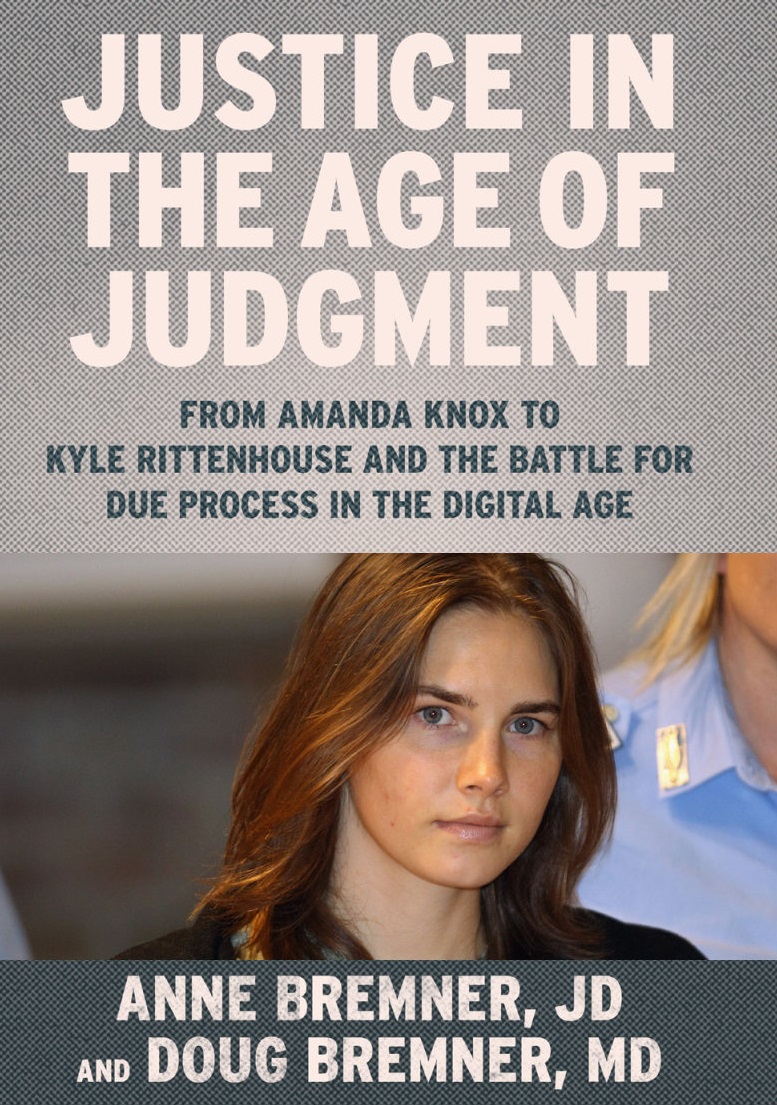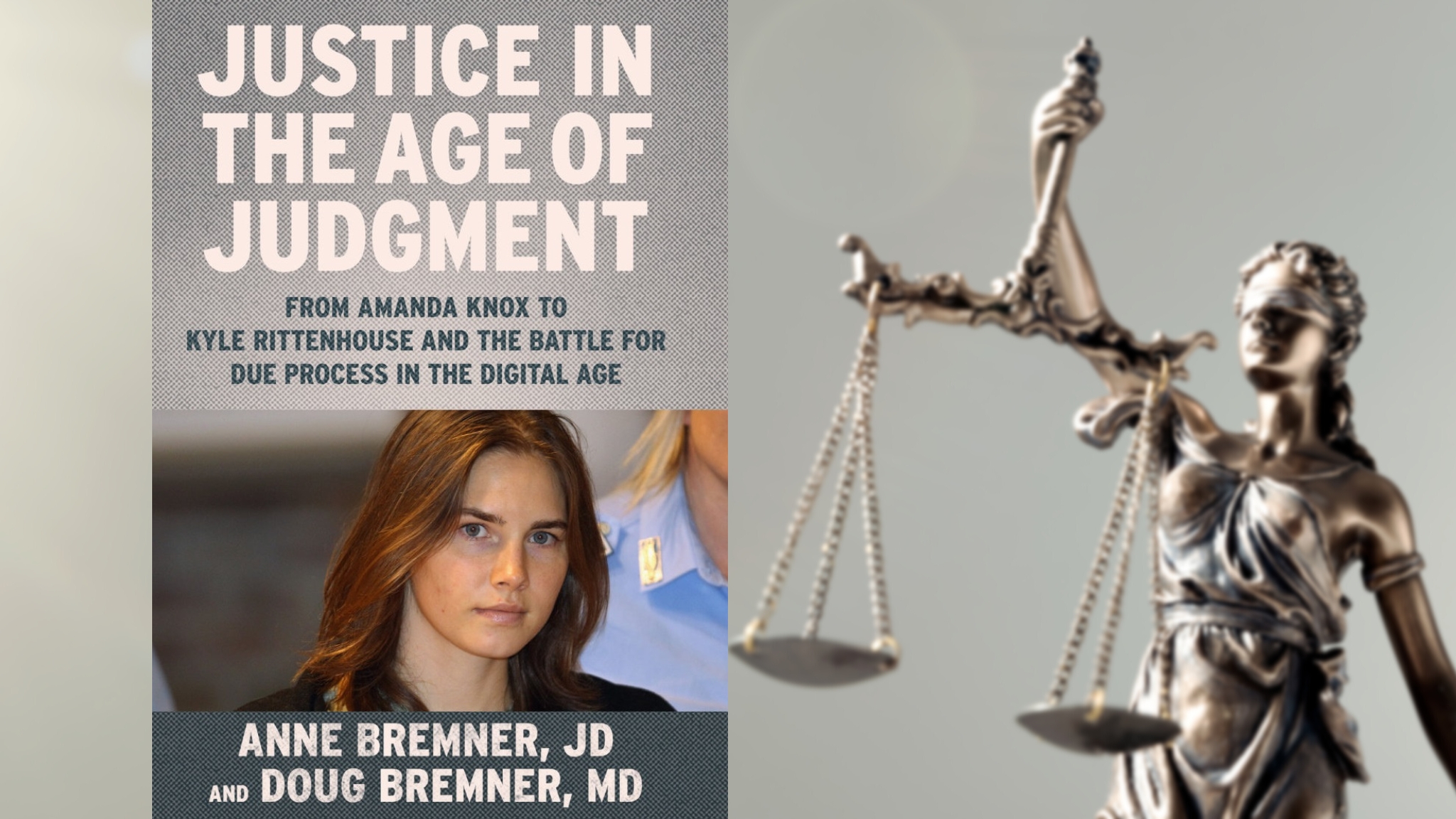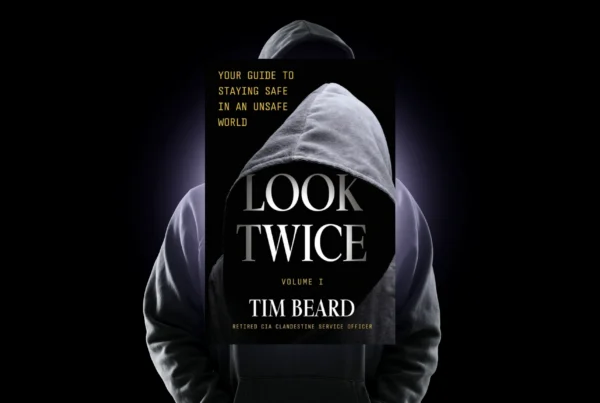Justice in the Age of Judgement by Anne Bremner & Doug Bremner
The American justice system is under attack from the court of public opinion feeding off the media’s myths, misconceptions and outright falsehoods, according to acclaimed attorney and legal analyst, Anne Bremner, and psychiatrist Doug Bremner, in Justice in the Age of Judgment (Skyhorse Publishing).
Falsified Cases, Misconstrued Facts & Pressure from Public
Anne Bremner, a Seattle lawyer with decades of experience as a prosecutor, defense attorney and cable legal analyst, joined the defense team of Amanda Knox in 2008. Knox, a young American student living in Perugia, Italy, was convicted for the brutal murder of her roommate, Meredith Kercher, in November 2007.
The quest to exonerate Knox spanned a decade, one that Bremner considers “one of the most important cases of my life,” and opened her eyes to the ways media and social media have “become a powerful force in the justice system, unduly influencing judicial outcomes.”
She calls the Amanda Knox case a “forerunner of our current era of ‘fake news’” where both traditional and nontraditional media weighed in on her guilt or innocence, creating a media frenzy where facts played little or no part. Her research into the case revealed the Italian police flubbed the crime scene in Perugia so badly that no courtroom in America would convict her, as well as Knox being hit in the head by a police detective during hours of interrogation.
All of this led Bremner to conclude the Knox case was “a travesty of justice and an outrage” that was being “tried in the media … on the internet, in private chat rooms where like-minded individuals posted conspiracy theories and spent hours scouring the internet for ‘clues’ they thought would be evidence of guilt.”
Insights from Inside the American Legal System
She provides fascinating insights gleaned from years working within the American legal system, including how judges and lawyers vet potential jurors. Framing the opening statement of a trial as the first impression that lasts, Bremner states that eighty percent of jurors make up their mind during the opening statement and that “once we make up our minds, we look for evidence to confirm our beliefs.”
It is a phenomenon known as confirmation bias, and everyone does it, she says. Jurors must put away their emotions, as well, in a case they are hearing because “you can’t base your decision on passion or prejudice; you have to base it on evidence.”
While the Knox case is the touchstone of her book, Bremner free ranges through several other high-profile cases she believes illustrate the negative effect of media on the execution of justice, including chapters on the O.J. Simpson “Trial of the Century,” the Duke Lacrosse “debacle,” and the controversial Casey Anthony verdict. Throughout, Anne and Doug Bremner shine expert light and incisive opinions on the bigger cases where media played an outsized role.
Doesn’t Shy Away From Controversy and Blunt Truths
Anne Bremner does not shy away from controversy and wades into the more painful cases of Ahmaud Arbery and George Floyd: she shares how Arbery’s case was shockingly ignored by local Georgia media until the repeated posts on social media by the Arbery family asking for action resulted in The New York Times running an article that shocked the nation … two months after Arbery was killed.
Bremner writes with a suffragist spirit as she revisits some of the “older” cases that were before her time, like that of actress Frances Farmer, who was sent to an asylum in 1943 and portrayed in the media as an “out-of-control nut who deserved what she got.” Bremner’s voice is often quite blunt, such as when she claims that of all the “tragic figures” in her book, the women “all got screwed, whereas the men were more likely to get off.”
Bremner presents and finally rests her case to you, the jury, to not rush to judgment based on what the media presents. In an elegant and clinically precise analysis of two recent jury trials with two different verdicts, the book’s penultimate chapter posits that new media and justice can exist alongside each other and need not touch. Justice in the Age of Judgment is a sharp, intelligent take on recent jurisprudence and ways that media continues to evolve, shape, and often warp the news people read.
About the Authors:

Anne Bremner, JD, is a trial attorney and one of the nation’s most recognized legal analysts. Her decades-long practice emphasizes civil rights, catastrophic loss, defense, and criminal law. In her thirty-five years as an attorney, she has been lead counsel for numerous highly publicized court cases. As a contributing broadcast legal analyst, Bremner appears regularly on national networks including CNN, Fox, CBS, NBC, MSNBC, the BBC, Court TV, and others. She has been voted one of the best lawyers in Seattle and one of Seattle’s Top 25 most influential people. She is a Stanford graduate and has a perfect AVVO rating as an attorney. She lives in Seattle, Washington.

Doug Bremner, MD, is a psychiatrist, researcher, writer, and professor at Emory University in Atlanta, Georgia. Dr. Bremner is a world leader in research in the field of posttraumatic stress disorder (PTSD) and memory, including studies related to false memories with relevance to coerced testimony. He has served as an expert witness in litigation related to PTSD and drug safety and has often appeared on CNN as an expert analyst. He has written over 400 research papers and several best-selling books including Does Stress Damage the Brain? and Before You Take That Pill: Risks and Side Effects You Won’t Find on the Label of Commonly Prescribed Medications, Vitamins and Supplements. Dr. Bremner lives in Atlanta, Georgia.





